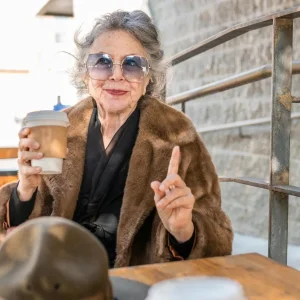I thought I was doing the right thing signing Grandma Rosie up for the Sunshine Senior Center. It seemed safe, cheerful, and full of activities she’d enjoy. But weeks later, she became withdrawn, stopped calling, and seemed unusually sad. Something was wrong.
One afternoon, I found her folding sweaters, shoulders hunched, muttering about being a burden. I noticed crumpled notes in her knitting bag with messages like, “They only visit because they want what you have.” The handwriting wasn’t hers. Someone was manipulating her mind. My heart sank.
I visited the center and saw a woman named Claire whispering to Grandma in a way that made her look distressed. After researching, I discovered warnings from other communities: Claire had a pattern of befriending seniors, isolating them, and influencing their wills and finances.
That evening, I confronted Grandma gently at dinner. She admitted Claire had convinced her she was a burden, planting fear and doubt. I reassured her, showing her that the love we shared and the life we’d built together couldn’t be erased by a manipulative stranger. Tears fell, but so did a weight of fear lifted.
We went to the director with evidence; Claire was banned, and authorities were notified. Grandma admitted feeling foolish, but I reminded her she had been targeted by a professional manipulator, not failing in any way. Trust takes time to rebuild, but we were starting.
The next day, instead of the center, we sat in a café, planning a new quilting group at Grandma’s house for other seniors affected by Claire. For the first time in months, she smiled with excitement. I told her, “You’re my foundation, not a burden,” and she finally believed it. Some bonds are unshakable.





